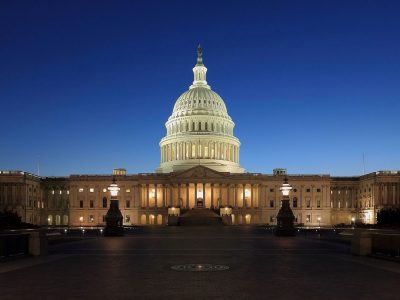Region: National
The State of the Race
Who will shape federal climate and energy policies? The answer remains too close to call.
Republicans are favored to take control of the Senate, but who will control the House and the Presidency remains too close to call. The implications for climate policy and the future of the planet could be profound.
CONTINUE READINGWhy the 2024 House Races Matter So Much for Energy and Climate Policy
Those races get a lot less attention than elections for the Senate, but they’re equally important.
Unified government would give Trump a much freer hand. Republicans are likely to win the Senate. If they also win the House, he wouldn’t have to worry about annoying congressional investigations and could use the Senate reconciliation procedure to gut environmental agencies and federal support for clean energy.
CONTINUE READINGElectric Shared Mobility:
Program Design Elements Can Produce More Equitable, Durable, and Successful Projects
Shared mobility—an umbrella term for any transportation mode shared among multiple passengers—has the potential to accelerate transportation electrification, air quality, and greenhouse gas reduction goals, meet the needs of underserved communities that most lack mobility access, and advance broader mobility equity goals. CLEE’s report, Electric Shared Mobility: California Lessons Learned for Equity in Program Design, …
Continue reading “Electric Shared Mobility:”
CONTINUE READINGThe Harris-Trump Debate and Environmental Policy
In the ABC News debate, both candidates were asked directly, “What would you do to fight climate change?” Fracking and energy policy got most of the focus.
While abortion and immigration took center stage during last night’s presidential debate in Philadelphia, climate change and energy policy were referenced throughout the more than ninety minutes, in stark contrast to that Biden-Trump debate in June in which climate change was largely relegated to one question. From the very beginning of the debate, Trump attempted …
Continue reading “The Harris-Trump Debate and Environmental Policy”
CONTINUE READINGShould We Be Upset If Candidates Don’t Provide Concrete Policy Plans?
Policy specifics give me something to write blog posts about. But how much should they matter to voters?
After all, you don’t need specifics to know that Trump and Harris have very different views about climate and energy. Should voters care about their failure to go into detail?
CONTINUE READINGRightwing Authoritarianism vs the Environment
In the U.S. and elsewhere, rightwing authoritarians oppose climate action. That’s not a coincidence.
Project 2025 favors authoritarian presidential rule. It also wants to destroy environmental regulation, especially climate law. That’s not a coincidence. The combination of authoritarianism, extreme conservative ideology, and anti-environmentalism is common globally, not just in U.S. politics. There’s no logical connection between a belief in authoritarian government, upholding traditional hierarchies, and views about protecting the …
Continue reading “Rightwing Authoritarianism vs the Environment”
CONTINUE READINGThe Zombie Myth of Job-Killing Regulations
Some ideas never die, no matter how much evidence piles up against them.
With the Labor Day weekend coming up, let’s talk about jobs. Some myths are like zombies in two ways. They refuse to lie down and die, not matter what you do. And if you aren’t careful, they can eat your brain. An example is the idea that environmental regulation kills jobs. Tragically, this brain worm …
Continue reading “The Zombie Myth of Job-Killing Regulations”
CONTINUE READINGThe Tragedy of Indifference
This election will have huge consequences for climate change. Sadly, that doesn’t seem to matter that much at the polls.
The partisan divide is real: Democrats are three times more likely than Republicans to view climate change as a major threat. Even so, a quarter of Republicans agreed with Democrats on this. The problem is that only 37% (almost all Democrats) view climate change as their top priority.
CONTINUE READINGTrump’s Replacement for Project 2025: The “Other” MAGA Plan
It’s not Project 2025, but the “America First Agenda” is worse in some ways.
From the perspective of those who believe in environmental protection, the Trump team’s switch from one rightwing think tank to another doesn’t seem to be much of an improvement. They would both set environmental law back by decades.
CONTINUE READINGClean Air and the Turbocharged Shadow Docket
Guest Contributors Sean Donahue & Megan Herzog write that coal advocates offer troubling new grounds for the Supreme Court to stay EPA’s carbon pollution standards.
The Supreme Court is currently considering eight emergency (or “shadow docket”) requests from coal advocates (coal-mining companies, coal-burning electricity generators, and allied State attorneys general led by West Virginia) to bar implementation of new EPA rules limiting carbon pollution from coal- and gas-burning power plants while legal challenges to the rules proceed—what is known as …
Continue reading “Clean Air and the Turbocharged Shadow Docket”
CONTINUE READING









